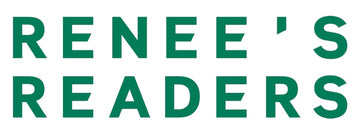
Reading Wellness in Our Digital Age
Written by Renee Bachner | 0 commentsSince the pandemic began, we have undergone a digital revolution. What was already in progress accelerated with stay-at-home mandates and then grew exponentially in what seemed like no time at all. We came to rely on our digital devices as our only connection to the outside world and for some this enabled them with the good fortune to continue working. Even now as we return to our new normal, we are still finding ourselves spending hours looking at our digital devices- for whatever the reason.
Digital wellness is defined as the intentional and healthy relationship with technology in the workplace and in personal life.
Although this might seem like trend of the times terminology, the next few years will propel us even further to almost complete digital reliability. Spending hours scrolling your phone or at your monitor either working, schooling, shopping, chatting, or sourcing just about every tidbit in your daily life, you may also find yourself feeling exhausted and your body complaining.
This constant close reading no matter what the digital device puts your eyes muscles in a continuous state of tension- eye muscles tighten to focus on things that are close. Once a marker of middle age, eyestrain is the most complained of ailment no matter what your age and is re-writing theories on presbyopia, the gradual loss of your eyes' ability to focus on nearby objects, as we head into the digital age. Life as we know it has changed.
Digital wellness begins with your eyes and travels down to the rest of your body. Headaches, aching, tired, dry or teary eyes, not sleeping well, back pain, tension in your neck, stiff shoulders and soreness from sitting all day, all chips away at your quality of life. Since we are all feeling this, we need to make changes to how we use our digital devices. Your well-being partly depends on how you take care of yourself, and your eyes are no exception.
Reading glasses, and for that matter all eyeglasses, including sunglasses, have become so fashionized that their true purpose has become secondary.
Reading glasses are first a medical device and as such the FDA categorizes them. The quality of the lenses you look through will make an enormous difference in how clearly you read which also affects the amount of time you can read without experiencing eyestrain and how you feel and how well your eyes are protected which also affects your long-term health.
If anything, this pandemic has shown us that looking good is not enough; it’s reinforced that feeling good is priceless. High quality reading glasses are now more than at the core of feeling good.
Renee
Licensed Optician
New York
